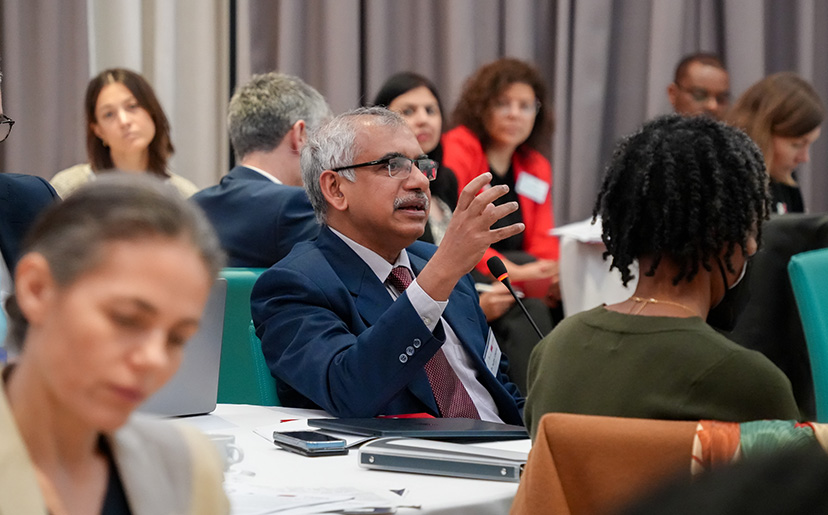On February 6-7, ICARS’ Executive Director, Dr Sujith J Chandy, participated in the Inaugural Evidence for Action (E4A) Dialogue on Antimicrobial Resistance (AMR) in Malta. The event was hosted by Hon. Dr. Chris Fearne MP, Deputy Prime Minister of Malta, chaired by Prof Dame Sally Davies, UK Special Envoy on AMR, and moderated by Prof. Kevin Outterson, Executive Director of CARB-X. The meeting focused on identifying critical research questions related to AMR to mobilise political action towards addressing the antibiotic pipeline and access crisis the world is facing.
The dialogue brought together politicians and policy makers with researchers and other AMR actors, providing a critical platform, in line with ICARS’ strategy, to bridge the gap between policy and science and feed into the UN High-Level Meeting on AMR. During the two-day event, ICARS and other key stakeholders discussed the need to translate evidence into action, push and pull incentives, challenges of access, mechanisms for monitoring and accountability, and sustainable financing. The aim of these discussions is to encourage political action on prioritising solutions in Low- and Middle-Income Countries (LMICs). The dialogue concluded with a summary session on the roadmap towards the UN General Assembly and inter-ministerial meetings on AMR later in 2024.

“I am delighted by the efforts of the organisers and the rich discussions by the participants at the E4A dialogue. It is important that AMR is given due consideration at the top of the world’s leadership agenda, and there is a true momentum to implement evidence-based solutions on a global scale to mitigate AMR. With this political will, heading up to the UN High-Level Meeting on AMR, ICARS’ model of implementing context-specific and cost-effective solutions has shown to be highly relevant, especially in addressing the critical gap in the efforts to mitigate AMR in low resource settings.”
Dr Sujith J Chandy, Executive Director at ICARS.

